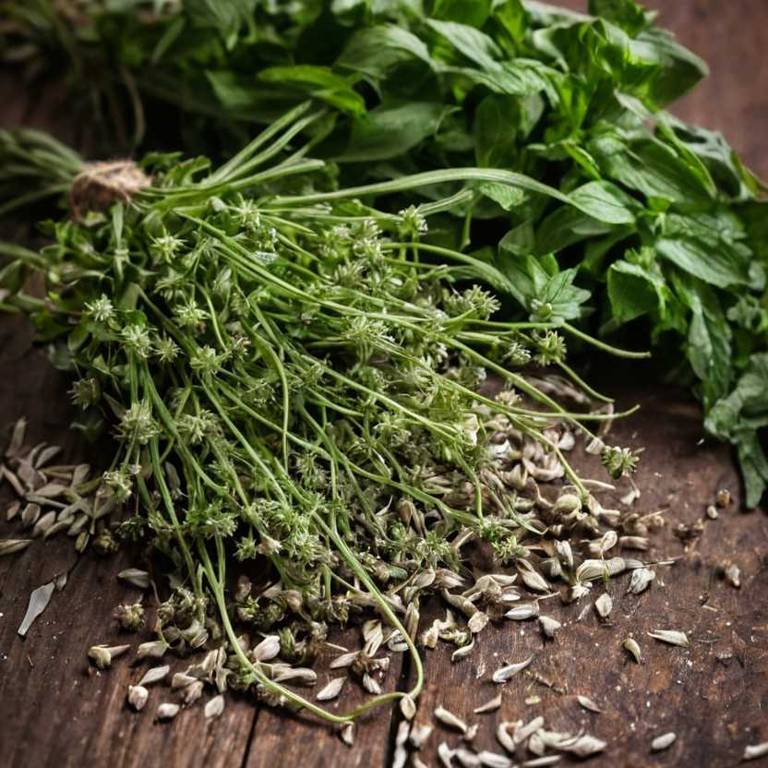Plantain (Plantago lanceolata)
Plantain (Plantago lanceolata) is a member of the Plantaginaceae family, native to Europe, Asia, and North Africa. Traditionally, its leaves, seeds, and gum have been used for decoctions, infusions, and powders.
This herb is particularly valued for its anti-inflammatory, diuretic, and astringent actions, and has a long history of use in european herbal medicine, mediterranean herbal traditions, and traditional chinese medicine.

Quick Facts / Key Information
| Common Name | Plantain |
|---|---|
| Scientific Name | Plantago lanceolata |
| Plant Family | Plantaginaceae |
| Genus | Plantago |
| Species | lanceolata |
| Native Range | Europe, Asia, North Africa |
| Plant Parts Used | Leaves, Seeds, Gum |
| Primary Medicinal Actions | Anti-Inflammatory, Diuretic, Astringent |
| Primary Traditional Systems | European Herbal Medicine, Mediterranean Herbal Traditions, Traditional Chinese Medicine |
| Historical Preparation Methods | Decoction, Infusion, Powder |
Botanical Identity
- Scientific Name
- Plantago lanceolata
- Common Name
- Plantain
- Synonyms / Alternative Names
- Broadleaf Plantain, Broadleaf Plantain, Common Plantain
- Plant Family
- Plantaginaceae
- Genus
- Plantago
Botanical Description
- Growth Habit
- Perennial herbaceous plant.
- Height
- 15 to 30 centimeters tall.
- Leaves
- Broad leaves with upper surface glaucous green and lower surface pale green, bearing distinct stomatal bands along the midrib.
- Flowers
- Inflorescence consisting of a spike of small, greenish-white flowers with two stamens and a single pistil, arranged in a dense, terminal cluster, exhibiting actinomorphic symmetry.
- Stems
- Elongated, erect growth habit with opposite branching, smooth surface, and presence of longitudinal ridges and prominent nodes.
Traditional Uses / Historical Use
Traditional Systems
- European Herbal Medicine
- Mediterranean Herbal Traditions
- Traditional Chinese Medicine
Historical Preparation Methods
- Decoction
- Infusion
- Powder
- Poultice
Medicinal Actions
- Anti-inflammatory
- In herbal literature, noted as a warming anti-inflammatory, in topical or internal use contexts.
- Diuretic
- In herbal texts, considered a moderate diuretic, for moisture-related balance.
- Astringent
- Traditionally described as a mild astringent, in structural-support contexts.
- Expectorant
- Historically regarded as a soothing expectorant, for airway-related applications.
Active Compounds
- Tannin
- A group of compounds frequently present in plant tissues exposed to herbivory.
- Flavonoid
- Plant-based polyphenolic compounds frequently distributed throughout aerial plant parts.
- Phenolic Acid
- A class of aromatic plant compounds commonly found in leaves, seeds, and stems.
- Glycoside
- Secondary metabolites formed through glycosylation processes in plants.
Modern Research Overview
Scientific research related to this plant is ongoing. This section will be expanded in the future to include summaries of phytochemical studies, laboratory research, and other relevant scientific literature as it becomes available.
Safety & Contraindications
- General Precautions
- General precautions have been noted regarding the use of this herb.
- Contraindications
- Available information does not clearly establish contraindications for the use of this herb.
- Allergies
- Sensitivity or allergy-related effects have not been clearly established.
- Drug Interactions
- There is insufficient evidence to determine whether this herb interacts with pharmaceutical drugs.
- Toxicity
- There is insufficient evidence to determine the toxic potential of this herb.
- Pregnancy & Breastfeeding
- There is insufficient evidence to determine the safety of this herb during pregnancy or breastfeeding.
Preparation & Usage Methods
- Infusion
- A preparation method involving steeping plant material in heated water for a short period.
- Decoction
- Plant parts are gently boiled in water to release soluble constituents.
- Poultice
- Poultices involve external application of prepared plant matter.
- Powder
- A preparation created by pulverizing dried plant material.
- Tincture
- Plant material is macerated in alcohol to create a concentrated liquid extract.
Growing, Harvesting & Storage
Growing / Cultivation
- Soil
- Prefers loamy soil with moderately well-drained conditions. Typically grows best in organically rich soils.
- Sunlight
- Thrives in full sun. Tolerates full sun to partial shade.
- Watering
- Prefers well-balanced moisture levels. Tolerates periodic dry conditions.
Medical Disclaimer
The information provided on this page is for educational and informational purposes only. It is not intended to diagnose, treat, cure, or prevent any medical condition. Always consult a qualified healthcare professional before using any herb for medicinal purposes.